SEO Myths That Are Holding Back Your Project
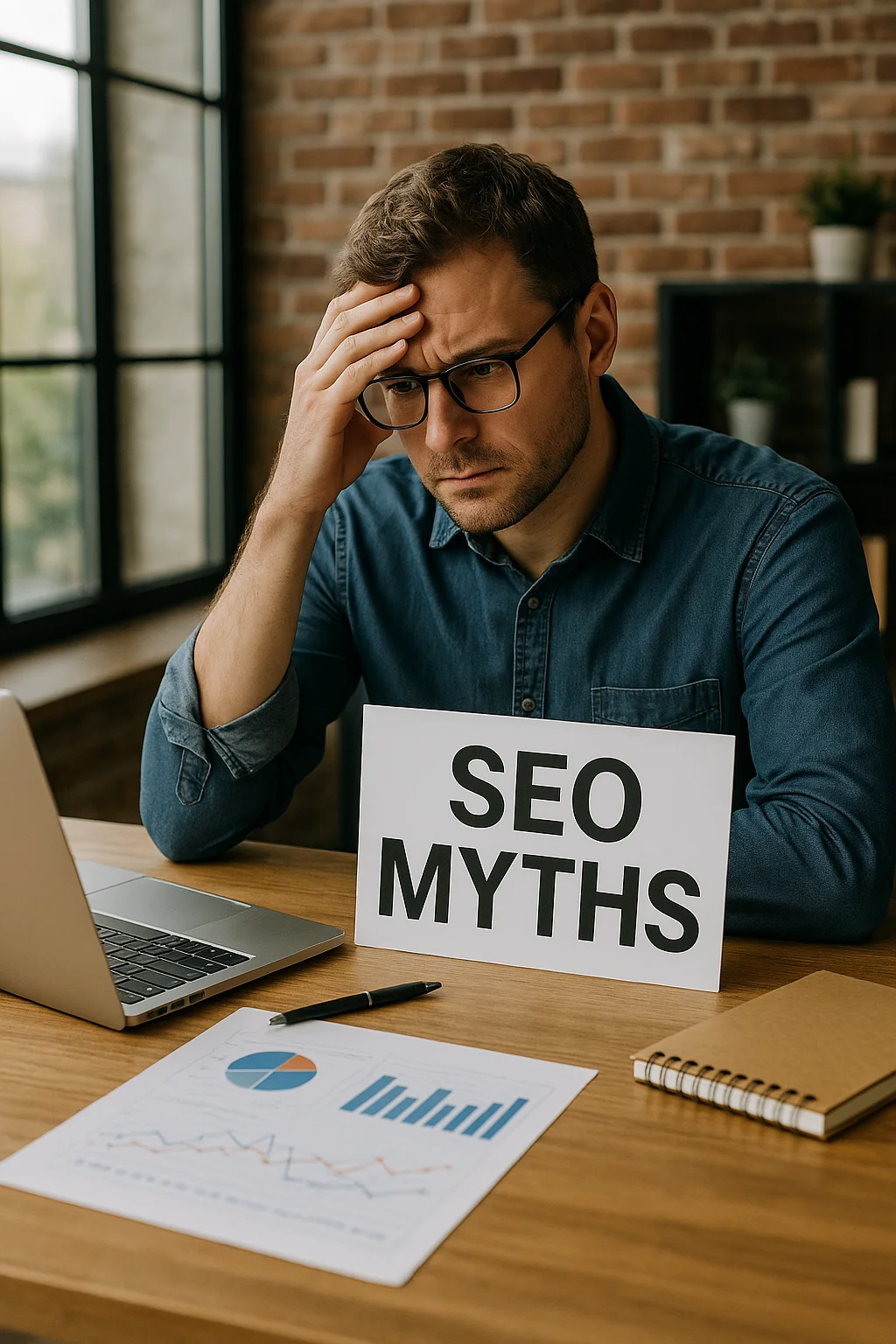
Keywords Are All That Matter
For many years, SEO beginners believed that simply inserting a list of high-traffic keywords into content would guarantee top rankings. While keywords remain an important element of SEO, the landscape has evolved significantly. Modern search engines prioritize user intent and the overall quality of content over the mere presence of keywords.
Focusing exclusively on keywords can lead to several issues. First, it often encourages keyword stuffing, which can harm readability and result in penalties from search engines. Content created solely around specific phrases may fail to engage readers, reducing time on page and conversion rates. Google and other search engines now evaluate semantic relevance, meaning they understand related terms, synonyms, and the context of your content rather than just exact keyword matches.
Another critical aspect is the rise of long-tail searches. These are highly specific queries that may have lower search volume individually but often convert better. Prioritizing long-tail keywords naturally improves content depth, relevance, and aligns with user intent, making your pages more likely to perform well.
Additionally, search engines now consider user experience signals, such as page load speed, mobile responsiveness, and engagement metrics. Even if you have perfect keyword optimization, neglecting these factors can prevent your content from ranking. This shift emphasizes that SEO success is a combination of content quality, relevance, technical optimization, and user satisfaction.
Ultimately, while keywords provide a foundation, they should be integrated naturally within high-quality content that addresses users’ needs. Focusing on valuable, informative, and contextually rich content ensures that your SEO efforts support both rankings and meaningful engagement.
More Links = Better Rankings
There is a common misconception that simply acquiring a large number of backlinks will automatically boost your search engine rankings. While links remain an important ranking factor, the reality is far more nuanced. Search engines now evaluate the quality, relevance, and authority of links rather than their sheer quantity.
Focusing only on collecting links can lead to spammy practices such as link farms, paid links, or irrelevant directory submissions. These tactics may trigger penalties, reduce your website’s credibility, and even harm your rankings in the long term. A few high-quality links from trusted, authoritative sites in your niche are significantly more valuable than dozens of low-quality links.
Another important consideration is link context. Search engines analyze where a link appears, the surrounding content, and how it relates to your website’s topic. Links embedded within relevant, informative content carry more weight than links from unrelated pages. Additionally, natural link growth over time signals credibility, whereas sudden spikes in backlinks may appear manipulative.
Internal linking also plays a crucial role in SEO. Strategically linking your own pages helps search engines understand your site structure, distributes link equity, and improves user navigation. This demonstrates that SEO success relies on a combination of external authority and well-planned internal organization rather than just amassing external links.
Ultimately, a sustainable link strategy emphasizes relevance, authority, and trustworthiness over quantity, ensuring that your backlinks genuinely support your website’s credibility and long-term ranking potential.
SEO Is a One-Time Task
Many website owners mistakenly believe that SEO can be completed once and then forgotten. In reality, search engine optimization is an ongoing process that requires regular attention, updates, and adjustments. Search engines continually update their algorithms, which means strategies that worked last year may no longer be effective today.
Content also needs continual refinement. Even high-performing pages can lose traffic if they are not regularly updated to reflect new information, trends, or user expectations. This includes optimizing for emerging keywords, refreshing outdated data, and ensuring that the content remains comprehensive and valuable to readers.
Technical SEO is another area that demands ongoing attention. Website performance, mobile responsiveness, secure protocols, and crawlability can change over time due to software updates, new plugins, or changes in site structure. Regular audits help identify issues that may impact indexing or user experience, preventing potential drops in search rankings.
Monitoring performance metrics such as organic traffic, bounce rates, and conversion rates is also essential. These insights inform adjustments to content strategy, site structure, and user engagement tactics. Without continuous monitoring and adaptation, even a well-optimized site can fall behind competitors.
Effective SEO requires a mindset of continuous improvement. By consistently reviewing, updating, and refining both content and technical aspects of your website, you ensure that your SEO strategy remains aligned with evolving search engine standards and user behavior.
You Must Submit Your Site to Google
There is a widespread belief that submitting your website directly to Google is necessary for it to appear in search results. In reality, Google’s crawlers are highly sophisticated and can discover new pages through internal links and links from other websites without any manual submission.
While tools like Google Search Console allow you to submit a sitemap or request indexing, this is not mandatory for visibility. Submitting your site can help speed up indexing, but it does not guarantee higher rankings. Google’s algorithms prioritize content quality, relevance, and authority over the act of submission itself.
Focusing too much on submitting URLs can distract from the core elements of SEO. Instead, ensuring that your website has a clear structure, proper internal linking, and well-optimized pages will naturally attract crawlers. Pages that are easily navigable and linked from other reputable sources are discovered and indexed more reliably.
Additionally, a well-structured sitemap helps search engines understand the hierarchy of your content, identify priority pages, and detect updates more efficiently. However, the sitemap is a guidance tool rather than a requirement. Google will still index pages that are technically accessible and meet its quality standards even without a sitemap.
Ultimately, the idea that you must manually submit every page to Google is outdated. Prioritizing site architecture, content relevance, and technical accessibility is far more impactful for long-term visibility and search engine performance.
Meta Tags Alone Will Boost Your Ranking
Many website owners still believe that simply adding meta tags, such as meta titles and meta descriptions, will significantly improve their search engine rankings. While meta tags are important for click-through rates and providing context to search engines, they are not a primary ranking factor on their own.
Search engines evaluate hundreds of factors to determine page rankings, including content relevance, user engagement, technical performance, and backlink authority. A perfectly optimized meta description cannot compensate for low-quality content or poor user experience. Overemphasizing meta tags while neglecting other critical aspects of SEO can lead to underperformance.
Additionally, meta tags should be written with both users and search engines in mind. A compelling meta description may increase the likelihood of clicks in search results, which can indirectly impact SEO through improved engagement metrics. However, using meta tags solely as a manipulative ranking tool without meaningful content will not yield sustainable results.
Other important tags, such as meta robots or canonical tags, influence indexing and duplicate content management rather than directly boosting rankings. Proper use of these tags ensures that search engines understand which pages to prioritize, but they function as technical guides rather than ranking shortcuts.
To maximize the value of meta tags, integrate them into a broader strategy that focuses on high-quality, relevant content, proper site structure, and user engagement. Meta tags enhance SEO effectiveness, but they cannot replace the foundational elements required for long-term success in search rankings.
SEO Guarantees Immediate Results
One of the most persistent myths in digital marketing is that SEO can produce instant results. In reality, search engine optimization is a long-term strategy that requires consistent effort, patience, and iterative improvements. Even with perfectly optimized content and technical SEO, it can take weeks or months to see measurable impact on rankings and traffic.
Several factors influence how quickly SEO results appear. Competition in your industry, the authority of your domain, the quality and relevance of content, and the number of backlinks all play critical roles. Websites in highly competitive niches may take significantly longer to rank than those in less saturated markets. Expecting immediate results often leads to frustration and poor decision-making.
Another aspect to consider is that search engines continuously evaluate pages for trustworthiness and relevance. New content or improvements are assessed over time, taking into account metrics such as user engagement, dwell time, bounce rate, and other behavioral signals. These metrics help search engines determine whether your content truly satisfies user intent.
Short-term tactics promising rapid ranking boosts, such as link schemes or keyword stuffing, can actually be harmful. Search engines are designed to detect manipulative practices, and attempts to shortcut the process may result in penalties, reducing visibility and slowing long-term growth.
Effective SEO requires strategic planning, monitoring, and continuous optimization. By focusing on creating valuable content, building genuine authority, and improving user experience, your website can achieve sustainable growth, even if results are not immediate. Patience and consistency are key to leveraging SEO as a reliable channel for long-term success.
Ready to showcase your project?
Join thousands of developers and entrepreneurs who have already listed their websites in our directory. Get discovered by potential users and grow your audience.
Free to list • Instant approval • No hidden fees
Frequently Asked Questions
Does SEO guarantee immediate results?
Are keywords the most important factor for SEO today?
Related articles

How to Optimize Your Project Pages for Faster Google Indexing
Boost your project pages’ visibility by speeding up Google indexing. Learn actionable strategies from URL optimization to structured data, internal linking, and content tips for faster search engine recognition.
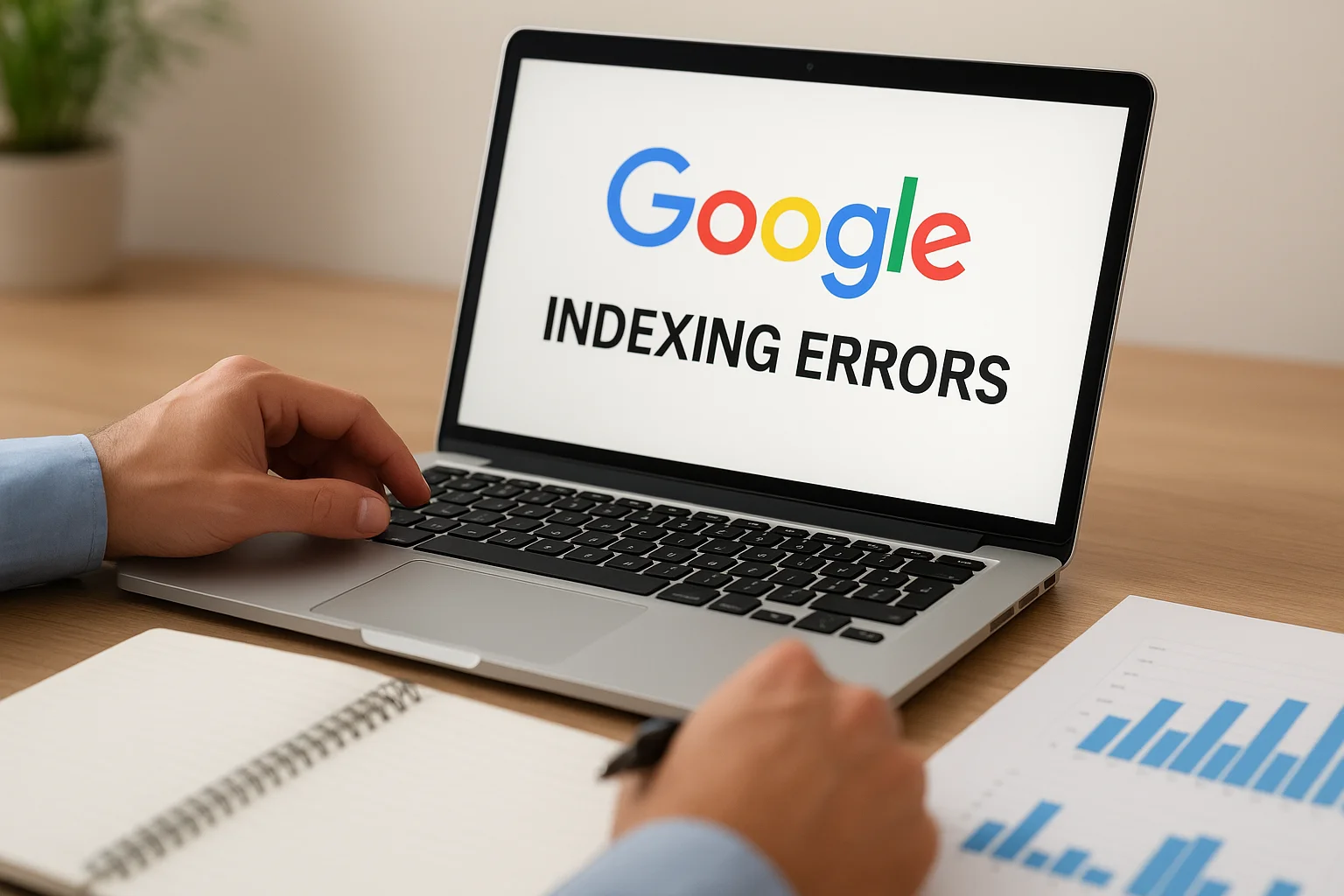
Quick Fixes for Google Indexing Errors
Struggling with Google indexing errors? This guide explores quick and practical fixes to help your pages appear in search results faster. Learn how to resolve common issues like “Crawled – Not Indexed,” blocked URLs, and duplicate content while ensuring your site remains fully optimized for long-term SEO success.

SEO Trends to Watch in 2025 for Startups
Discover the key SEO trends shaping 2025 and learn how startups can adapt to stay competitive. From AI-powered search and voice optimization to EEAT and zero-click results, this guide explores practical strategies to boost online visibility and long-term growth.

The Impact of Core Web Vitals on Rankings and Conversions
Core Web Vitals are key performance metrics that Google uses to measure user experience. They influence not only search engine rankings but also how visitors interact with your website. A fast, stable, and responsive site improves visibility, boosts engagement, and increases conversions. Understanding and optimizing these metrics is essential for businesses looking to grow online.

Local SEO for Small Projects: A Practical Guide
Local SEO is essential for small projects aiming to attract nearby customers. This guide covers practical strategies—from Google Business optimization and keyword research to managing reviews and local links—to help your business get noticed locally and grow effectively.
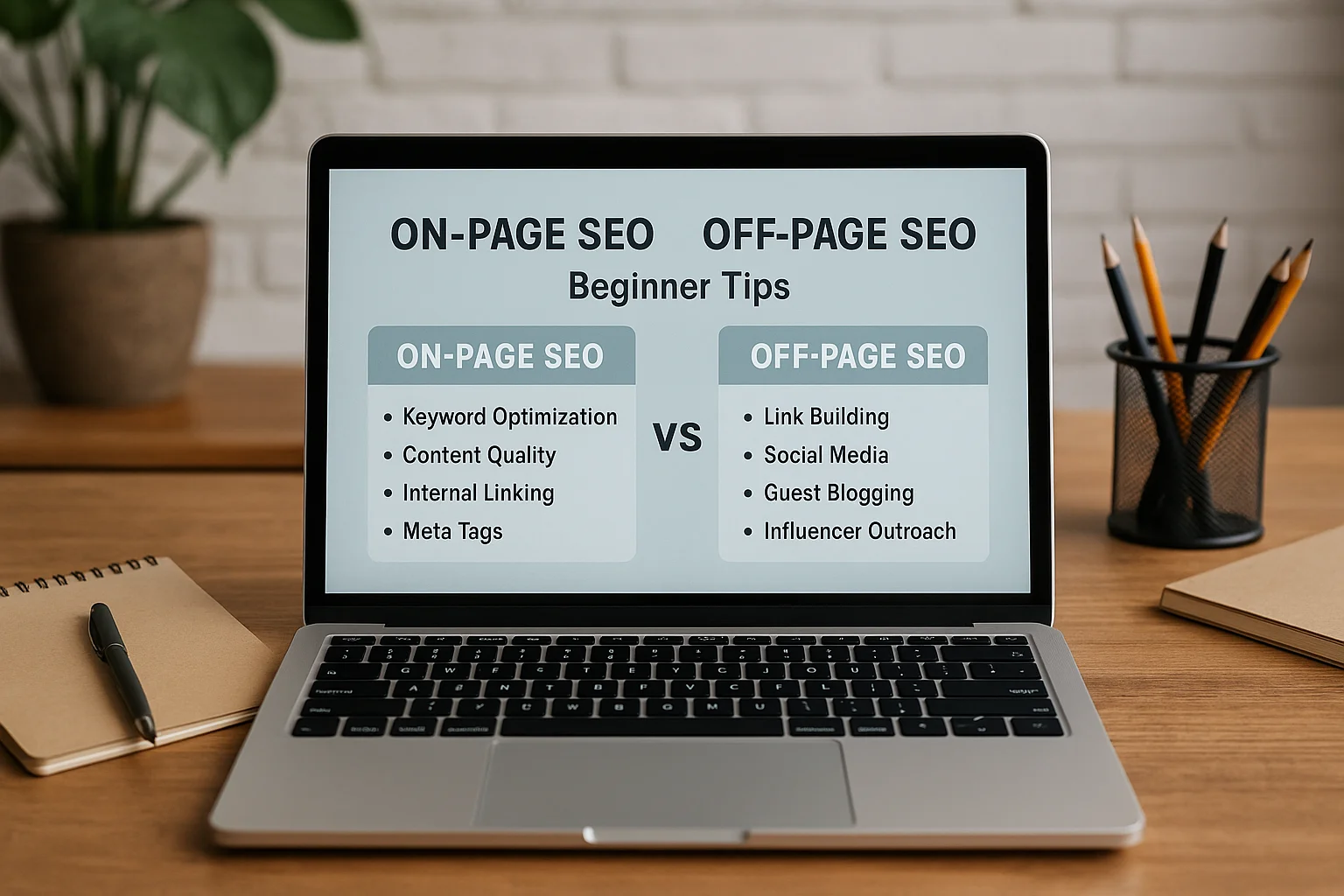
On-Page vs Off-Page SEO: A Beginner’s Guide
SEO can be confusing for beginners, but understanding the difference between On-Page and Off-Page SEO is essential. On-Page SEO focuses on optimizing your website’s content and structure, while Off-Page SEO builds authority through backlinks and online presence. This guide breaks down the basics to help you start improving your site’s search rankings today.
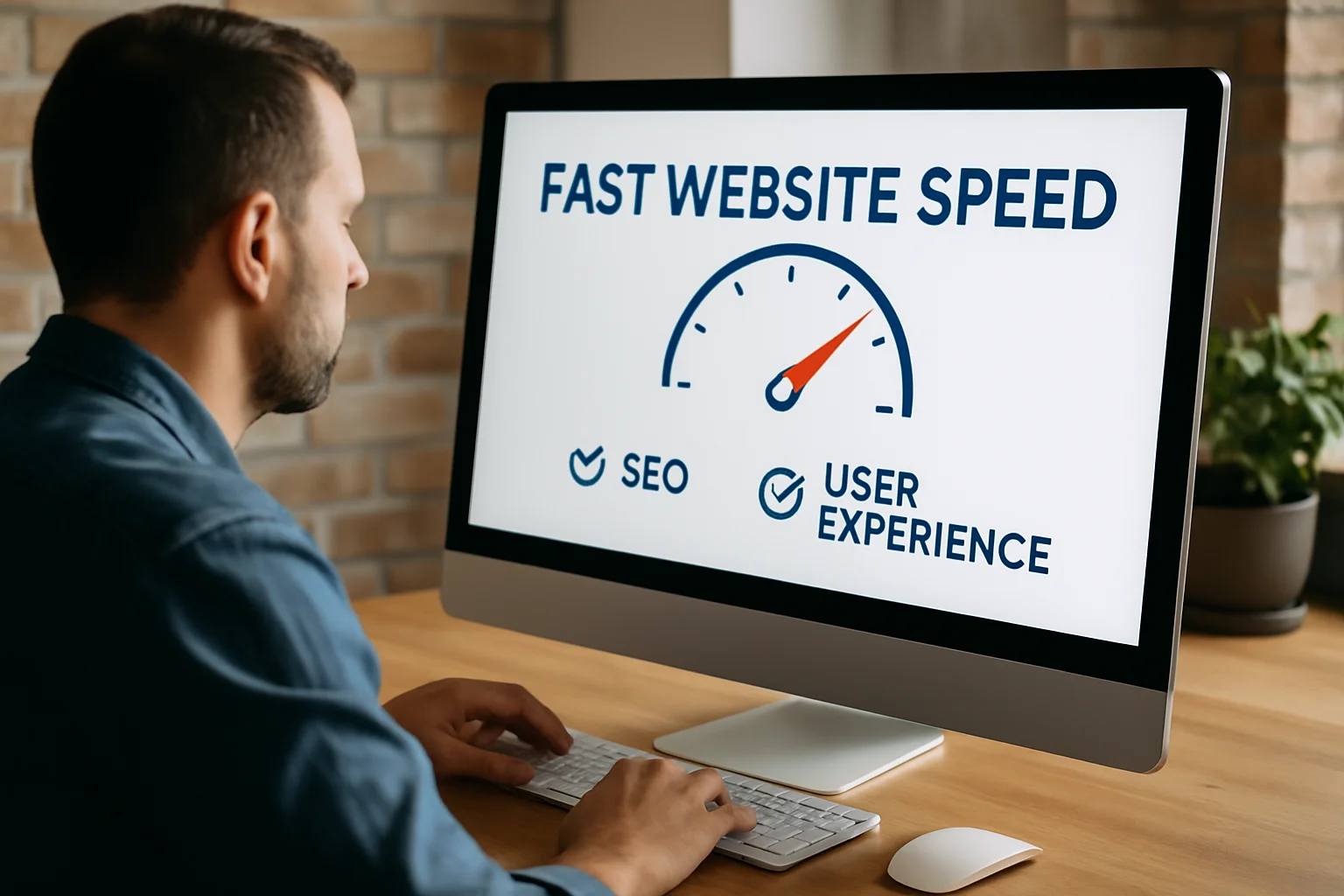
The Importance of Site Speed for SEO and User Experience
Site speed is a critical factor for both search engine rankings and user experience. Slow-loading pages frustrate visitors, increase bounce rates, and hurt conversions. This article explores why speed matters, how it affects SEO, and practical tips to make your website faster.
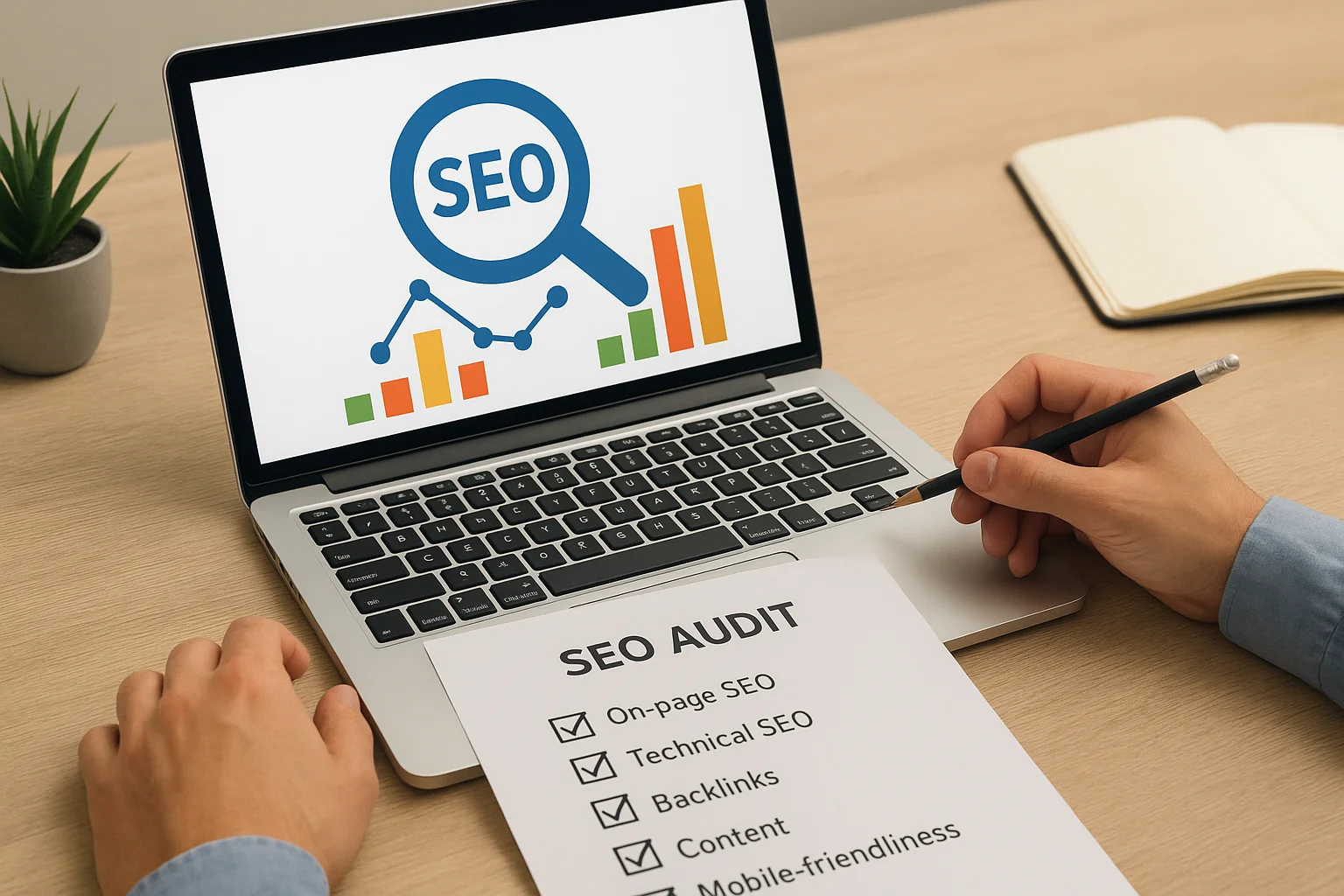
How to Perform a Simple SEO Audit for Your Website
Conducting an SEO audit doesn’t need to be complex. With a few simple steps, you can evaluate your site’s performance, uncover technical issues, optimize on-page elements, and strengthen your SEO strategy. This guide will walk you through the essential checks to ensure your website is both search engine and user-friendly.

Using Google Analytics to Track SEO Performance
Google Analytics is a powerful tool to track and improve your SEO strategy. From monitoring organic traffic to analyzing user behavior and conversions, it provides insights to optimize your website and boost search engine performance. Learn the key metrics, reports, and tips to make data-driven SEO decisions.